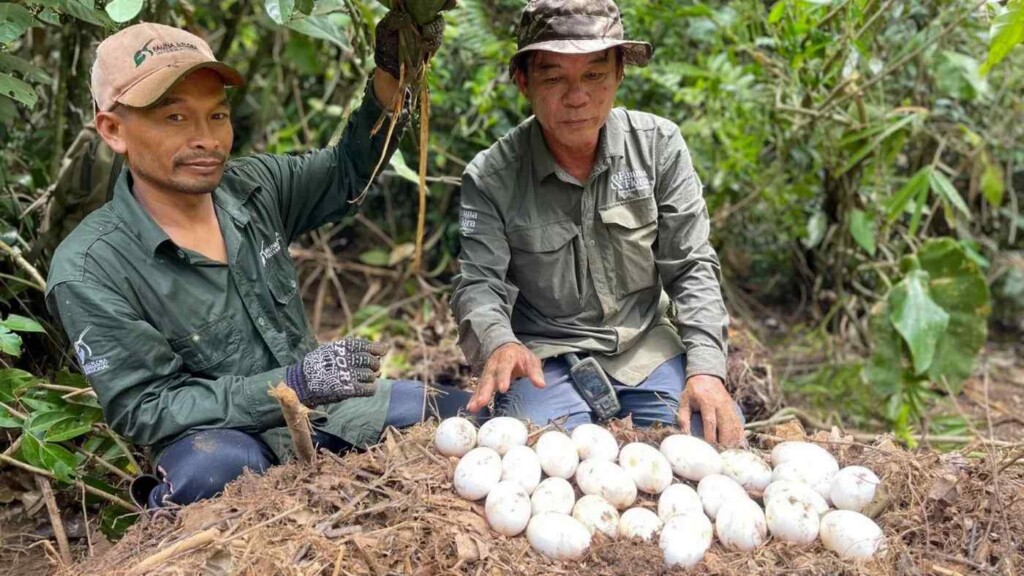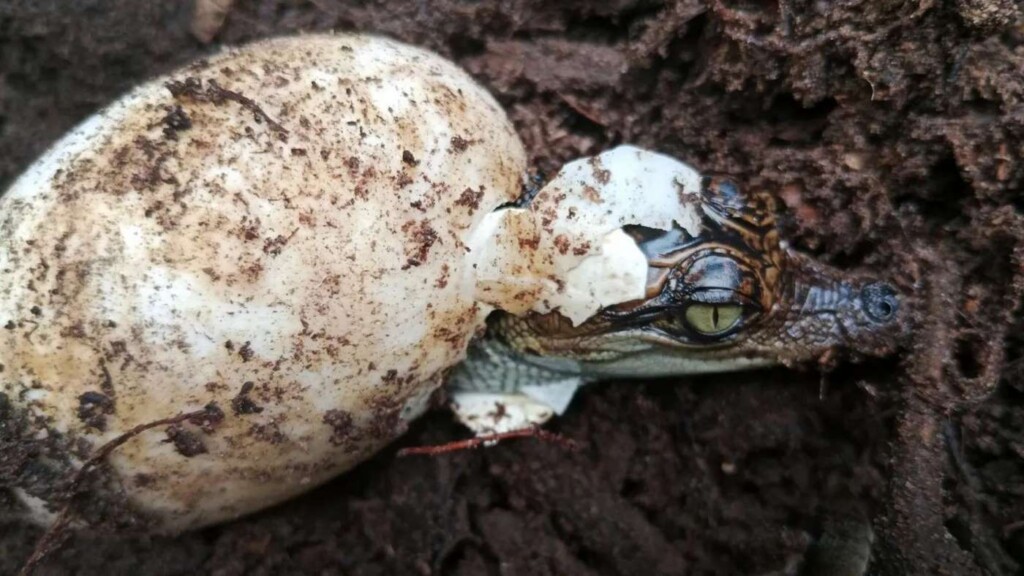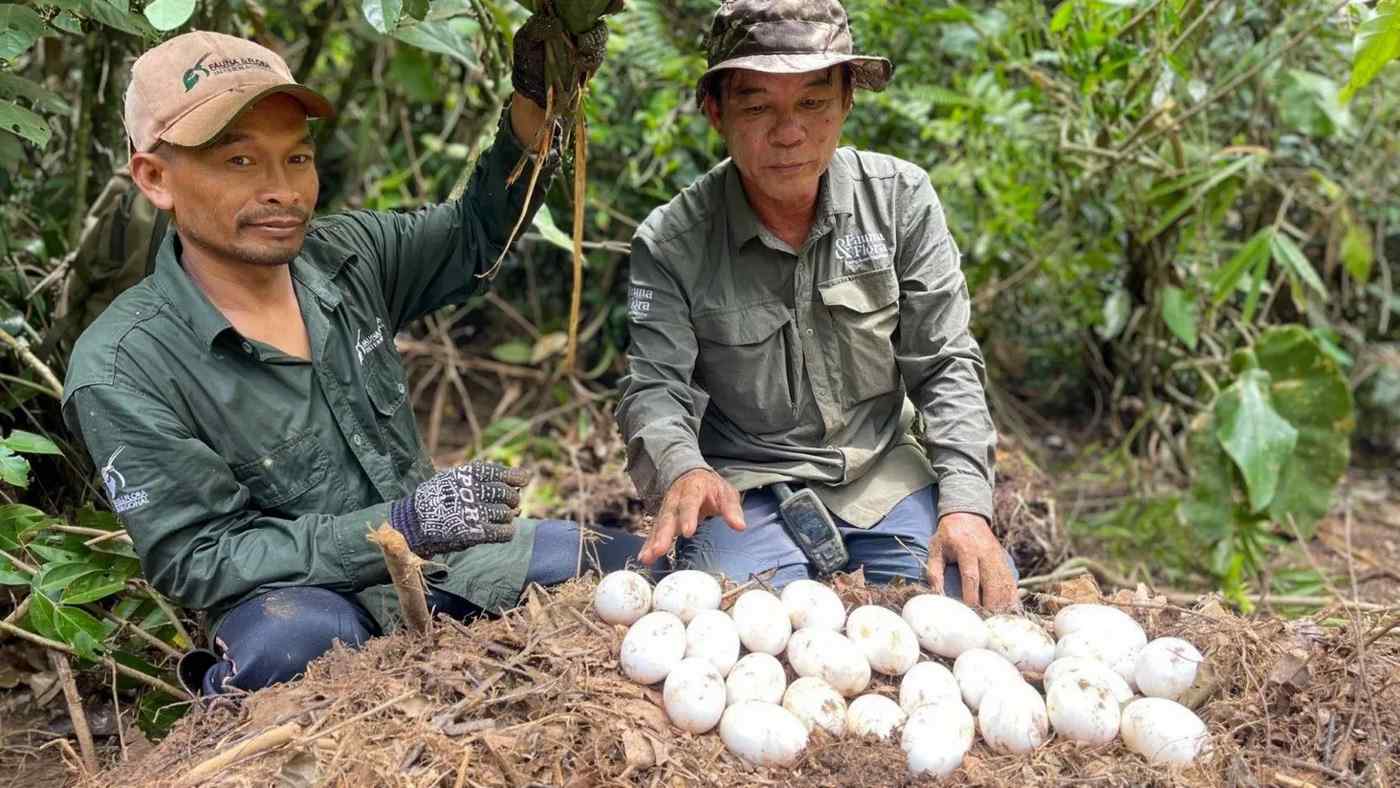
In Cambodia, 60 eggs were found in the nest of one of the world’s most endangered large reptiles which after hatching set a new record for an international conservation effort to save them.
It was believed the Siamese crocodile, with the distinctive bony crest running down its skull, was extinct in the wild until it was rediscovered in 2000. Almost all of the 400 animals remaining live in Cambodia.
A network of private-public partnerships have been organizing conservation measures to protect the species, including captive breeding and reintroduction programs, and village patrols to ensure their nests and habitat are not tampered with.
In May, locals in the Cardamom Mountains found a nesting site in an area that crocodiles hadn’t been released, suggesting they are expanding and breeding under their own powers: a tremendous sign for the species’ recovery.
“The hatching of 60 new crocodiles is a tremendous boost,” said Pablo Sinovas, who leads the Cambodia programme of conservation group Fauna & Flora International, which has been running a captive breeding program since 2012.
They’ve successfully reintroduced 196 crocs back into the wild, and it was they who deployed a team of conservationists to the nest site found in May for round-the-clock care and observation until every last one of the 60 eggs hatched, bringing their precious cargo into the world.

Generally speaking for crocodile species, the mothers are very attentive beasts, and even the fathers will help raise young if the mother isn’t around. When hatching, the little crocs emerge from the creche of eggs chirping, calling the mother in who then excavates the nest and takes any unhatched eggs in her mouth, rolling them around to speed up the hatching process.
REPTILES RETURNING: Town Saves the Threatened Bum-Breathing Punk Turtle–a 9lb Wonder Found Only in the Mary River
The young are carried to the water in the mother’s mouth, where she will watch over, feed, and care for them until the next mating season. Despite this motherly love, baby crocs have a very high mortality rate from predation.
SHARE This Great News From The Reptile World With Your Friends…




















